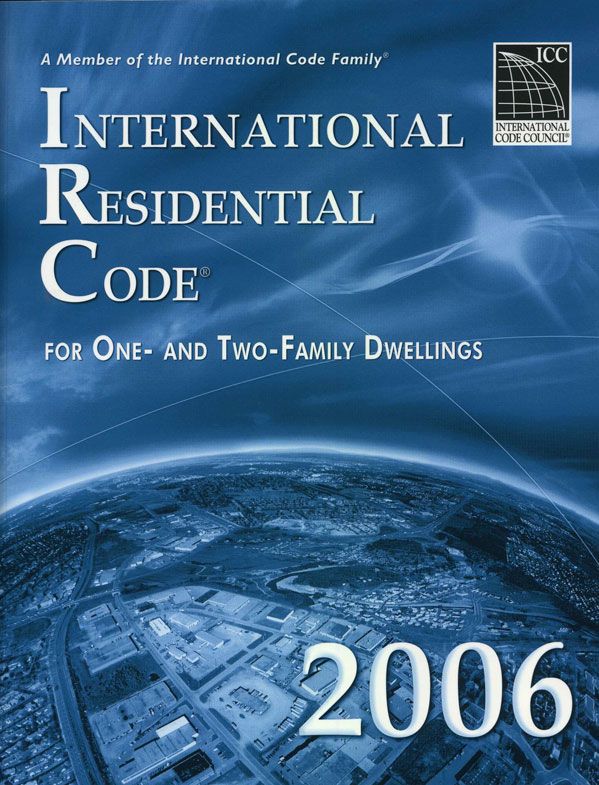
Roy Harmon wonders where we’ve gone wrong. Despite strict building codes, he says, greedy developers have succeeded in building “thousands of plastic shacks called homes” using poorly trained, inexperienced workers.
Surely the system wasn’t designed to produce this result. Maybe we’d all be better off if the focus was on taking a fresh look at training and craftsmanship and putting less emphasis on codes that don’t seem to produce very good houses.
His comments in a Q&A post at Green Building Advisor touch off a wide ranging conversation, not only about how building codes have affected the houses we live in, but also real estate appraisals, what buyers want when they shop for a new home, and how the housing industry is a reflection of social values that seem to favor short-term gains over long-term benefits.
That’s the subject of this week’s Q&A Spotlight.
Fine Homebuilding Recommended Products
Fine Homebuilding receives a commission for items purchased through links on this site, including Amazon Associates and other affiliate advertising programs.

Handy Heat Gun

8067 All-Weather Flashing Tape

Reliable Crimp Connectors
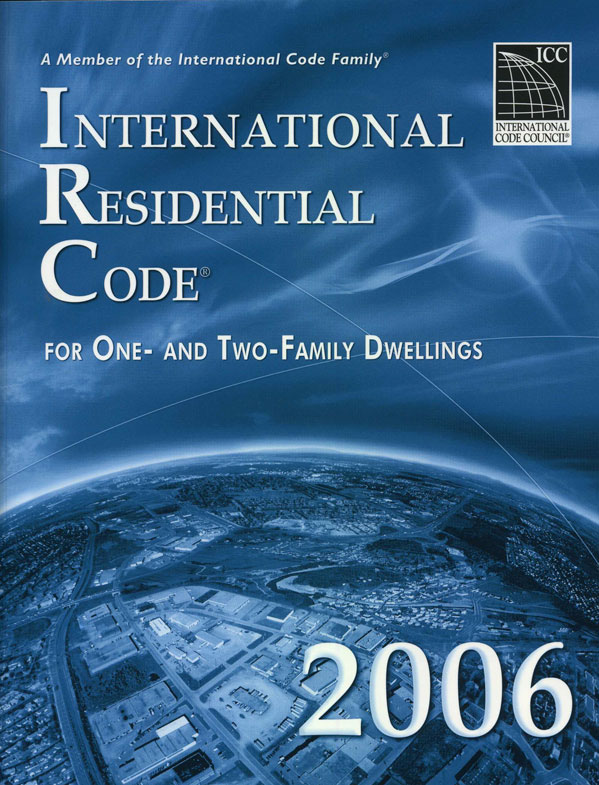

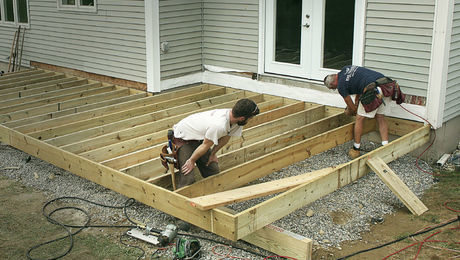


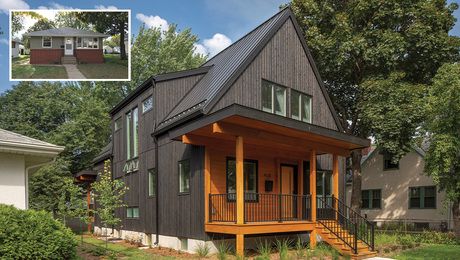

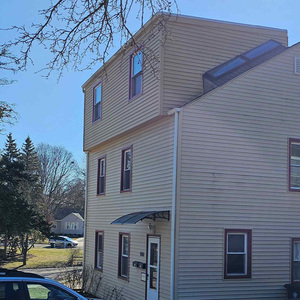
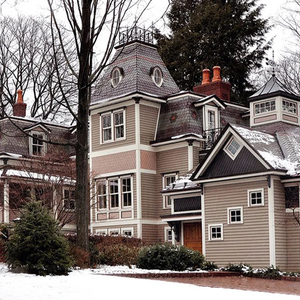



















View Comments
I could not agree with you more.
The Building Code is only the mimium standard of care and not a quality control manual.
I am not sure I would put less emphasis on the code, if anything I would make it mandatory that the GC's and their sub's read and understand the code. What I have found is that 9 out of 10 GC's do not keep up with the building codes and must likely do not have a code manual in thier position.
Up here in northern VT you would be hard pressed to find a "contractor", and I use the term loosely, that will even dish out the $100 for the code book, let alone actually know what is in it. Don't get me wrong, there are a handful of quality builders around, but most of them were taught by an old school craftsman from years gone by, and they get by because the fundamentals of a quality house are, for the most part, still the same. The other 95% have little skill and no knowlege of the building code. Lucky for them we have no building code enforcement around here. This equates to a lot of substandard built homes.
I have to agree with Ed_AIA, mandatory building code education for anyone who is in control of the building of a home. We don't even have building inspections up here. If the state of VT doesn't enforce the code then the banking/mortgage companies should step up and require it.
I agree with both Ed AIA and ColdHands and could not disagree more with the author. The code was developed as a minimum requirements for consumer safety...not to provide a guideline for quality construction. While sometimes the two go hand in hand, often they do not. It is not meant to make sure a door is hung level or baseboards meet in the corner. Instead it was meant to address minimum life safety requirements.
Over the years, it has expanded beyond this to try to regulate other issues (energy efficiency, insulation requirements, etc.) - much to this to my dismay, but this would be a different topic than "are we better off with codes".
No one who is truly conversant in the building design and construction misunderstands the role of codes and that they are not a measure of quality but merely the minimum requirements and no one would want a house that just barely met all the building code requirements. I wrote about this in my blog at :
http://grewsviews.blogspot.com/2010/07/passing-inspection-does-not-mean-you.html
Thanks,
Greg
Milton Gregory Grew, AIA
Architect / building official / builder
Woodbury, CT
http://www.grewdesign.com
Being an ex code official for over 14 yrs, I can tell you that there are problems on both sides of the fence. Many code officials have the expertise but are not allowed the money, help or time from their government employer to properly inspect all projects. My experience as a code official was that almost all contractors welcomed my help to help understand the building code. Code officials are not trained to memorize the code, but to be able to read a code book and understand how to answer a code question. Building codes are very complex and require years of training to understand were to go in the code to properly answer a building construction question. All code officials, with few exceptions, welcome contractors questions and will usually go out of their way to get the right answer and not even ask for your name. We are all in the same boat, nobody wants to be responsible for someone's safety by not following the code. Almost every building code requirement is the result of some accident or disaster that has happened in the past. Hopefully, we learn from our mistakes.
I think testing at licensure is more important. The problems that I run into are interpretation by inspectors, loss of time because the wait for someone who has to service many contractors and repairing the work of fly by night contractors and DIYers. I once had to completely tear off a roof and some other work done by a contractor that was supposedly licensed and proudly displayed the BBB symbol on his vehicle. He had 74 failures on a 1000 sq ft roof.
I see the answer in privatization. Let construction managers and home inspectors pick this up and do away with the building inspectors. The crooks will still be there, but the good contractors can save time and it also provides a transition vocation for carpenters in later life.
The answer is simply
"They do very little good"
As a homeowner with significant experience in renovations, the problem with the codes and code enforcement is that they are strongly weighted in favor of new construction and large professional contractors and against homeowners who simply want a safe, durable home and are capable of doing at least some of the work themselves.
Electrical and plumbing codes in particular have a lot of added baggage that was never necessary, but was pushed by contractor and supplier groups to force homeowners to purchase their products and services. Knob and tube wiring is a glaring example. If it was properly installed and maintained and is not improperly spliced, there is not one shred of evidence that it poses any fire hazard. Yet many owners of early 20th C. homes and older are saddled with the added cost of complete rewiring for virtually any renovation because of code enforcement. More often, that simply leaves such homeowners in the position of foregoing needed repairs and having major problems when it comes time to sell.
I've experienced some similar problems myself with plumbing--I wanted to run 1/2" pex in home runs for hot water, when I replaced old copper (due to elevation of flood-prone home). Code said I had to run 3/4 to within 10' of every fixture. Why? No reason, except to mess with us. Might that have been important if not doing home runs or running copper? Maybe. Now, thanks to my friendly, a-hole inspector, I get to wait nearly twice as long for hot water at my bathroom sink (yeah, I timed it before replacing the 1/2"), I had to incur the additional expense of the 3/4 pex and bunches of fittings and hangers, as the inspector required, plus getting a licensed plumber to do the job in a way that I didn't want nor need and that contributed nothing to the safety or sanitation of my home. A $1,000 later, I've got worse than I had, been subjected to delays, threats, and harassment, but code enforcement is happy.
So yeah, codes suck when they aren't reasonable and don't allow people to do just what is really right, safe, and workable, instead of what makes the contractor, material suppliers, and code enforcers more money. And they wonder why so much really dangerous work is done without "pulling permits." Idjits.
I am a state licenced home inspeftor in Illinois.
I work, often, in Chicago, where the building code dept. is wholey owned by the unions. Don't get me wrong, I have nothing against unions (most of them, in this area, provide great training and professional advancement. However, they have priced themselves out of the market and most of thw "tradesmen" are newly immigrated workers (come good, some not so much.
Please understand that municipal code inspectors, in Illinois, have NO liabilirty whatsoever. This is the result of a court ruling in the infamous porch collapse cases in Chicago.
Also, in Illious, any municipality with > 20,000 population can choose to adopt its own, specific, local building codes. Forget about the IRC or the NEC. Local choice rules.
At least around here, codes represent two things:
1) What is the bare minimum that the GC has to do to get paid.
2) Whaqt is the bare minimum that the code inspector has to check.
There are many instances of fully inspected and "approved" (i.e., no call outs. Around here, now code inspector says that the building is OK.) with glaring defects.
Commonly seen:
1) No parapet wall coping flashing (or window sill flashing or flat roof termination bar flashing or ledger bo0ard flashing, etc).
2) Cat 4 furnaces installed with no combustion air vent installed.
3) "Climbable" stairway ballisters.
4) Unsealed split faced concrete block, installed as a single wythe wall with the trusses grouted into pockets in the block. (Don't get me started!)
5) No testing or professional requirements for GC licensing (only G/L insurance required). BTW, in Illinois there are only two trades that are state licensed (with testing), roofers and plumbers. But many do these without the required licenses because people hire them because they are cheap.
So, it's pretty much up to the public to protect themselves.
Hope this helps;
WIll Decker
Decker Home Services
I don't believe anyone intentionally builds a dangerous home. Every building code represents a tragic occurrence and many hours of discussion. Lots of code suggestions are rejected.
I believe a lot of work could be safer and code compliant through education. In California, I renew my contractor license by just sending money. There should be re-testing or at least continuing education. Real estate agents need a certain amount of documented hours of education courses to renew their license. Lawyers need a certain amount of documented hours of education courses as well. Why not contractors?
California has no license requirement for home inspectors. Complete an on-line course and get some business cards. Interesting, the lady who cuts my hair needs a license. Here on the Left Coast, maybe we're granola (nuts and flakes).
I am not a professional builder but I have helped build or repair over 200 homes of low income families. I have noticed in my industry that the only new published methods are driven by those with something to sell and I can't help but think the same thing is happening in the construction industry. The prime example is the sprinkler system requirement- think of all the potential Habitat home owners that would no longer qualify because of the cost to this requirement. If this requirement is so great, I would think that everyone building new high dollar homes would have been installing them for years. I believe most builders and inspectors do great jobs- the code really needs to be the bare minimum requirements.
This so called "Public Service" has become a public nuisance. With ego driven inspectors who take pay off's from big contractors, how do we expect the hard working honest contractor to survive. Most inspectors think that they have arrived and nobody has any sense but them. I will say I have found a few who do not fall in this group and some of them even appreciate good craftmanship but they are definately in the minority around my neck of the woods. Even when we go to purchase a building permit, the office staff and chief inspectors act as if it is a bother that you ask any questions. They put their pants on one leg at a time just like the rest of us but they read a book and passed a test and now they are the "Contruction Gods" who are going to save the public from bogus contractors. Ha! Most of them couldnt even tell you what pitch a rafter is if you laid the framing square on it for them. They all get their few codes that they drill on and the rest of the building could be falling down. You can over-span your floor joists but by all means don't dare get your steps a 1/4" off. Tear them out and start over. I don't play games and give them a couple of obvious mistakes to write down. My goal is to pass it the first time so I can move on. Childish corrections just cost time and make you look incompetent. I have passed houses of 4,000sq. ft. and even bigger the first time. I hate to suck up to some inspector just to get a passing ticket. When it's built right they should be smart enough to know it and be glad that your not trying to pull something over on them.
I have lost many jobs because of people bidding to do just the minimum required and with the cheapest labor and materials. There is no code to help any of us with this situation. However, I have found that when I try to compete with this I only lower my standards to get there. I don't do it anymore!! I can sit at home and make nothing without even being tired. Building Codes should help make the playing field level for all contractor's to build to the same standard. Around my area, that's not the case.
By the way, Inspector Dude, are you on some kind of drug??? There is enough legal crap already. I have been building for over 27 years and because some state decides to pass a law for more license requirements I suddenly become stupid about my job??? More government regulations is the last thing anyone needs!!! They can't take care of what they already require. More requirements only means that they get more of my hard earned money that they are not entitled to. It's all become just a way to make money off of the hard working american. You said yourself "I renew my contractor license by just sending money." Wake up man. It's a full time job just trying to make sure that your business is legal. Just wait til more insurance regulations are put in place. You will get all the government input that you can handle. Just think.........the ones who are in charge of all the developement..........they actually got a college degree to be that stupid.
Go figure.........
I am not setting out here to stir up any animosity or create enemies. I just want to share a couple thoughts & experiences I've had in the home-building & inspection arenas. First, though I'm not a builder, I am a Realtor & have been a home owner since 1975. I've assisted clients in the home-building experience, & I've myself had 2 homes built for my family. I am not afraid to be "hands-on" as a home owner, so I've had many experiences having to do with maintaining, repairing, & replacing components in my homes. First, I will say that this has caused me to develop great respect for builders!
However, I am also very disgusted with the overwhelming number of "hardboard-box, minimum-quality" homes that have been "thrown up" (pun intended) during the past several decades. I am living in a home that was completed in 1999 & is a prime example of "cheaping out" on the part of each-&-every subcontractor which the GC allowed to have happen so that he could profit from creating a lot of square feet at the lowest cost for the maximum profit.
I realize that this is capitalism & the only thing wrong with it is that most consumers just do not have a grasp on the level of quality, sustainability, or energy efficiency when it comes to building components. In my experience as a Realtor I have learned that most clients look upon a new home as one that is flawless, except for final walkthrough issues, & "that's that." There's almost a glazed look that comes over people when they find The home that they have decided upon, when it comes to new construction.
I also have purchased & renovated & completed homes that were built in 1954 & about 80% complete in 2007 (when I purchased it from the bank with a construction loan & then proceeded to complete it & sell it). I DO NOT CLAIM to be a building or renovation expert! However, I've learned some things along the way.
One thing I learned is that while I personally prefer less government in our lives, there are sometimes good reasons for SOME governmental intervention. For instance, we'd still be banging our heads on metal dashboards & going through windshilds of vehicles during collisions without govt.-required safety standards in vehicles. Unfortunately, I believe, the same may be said about home building. What I see in the Omaha area is sort of a modern-day Wild West approach to home building once we get past minimum-code standards. While it is absolutely true (& preferred on my part) that competition among home builders has improved, somewhat, the quality of home builds, there are still many "builders" who, because they can put together financing or have the capital, continue to put up homes which are, indeed, quite minimum in quality, sustainability, & energy efficiency. It is interesting to note that very often, these same "builders" are the ones most vocal in complaining about code issues. No surprise there for many readers of this post, eh?
When I sought to obtain the final inspection & permit for the new-home build (nice little walkout ranch with a covered deck), I had to address a couple issues that were pointed out to me by the Chief Inspector. Was this a pain? Sure. Were these things pricey &/or difficult to do? NO. Going through the final inspection, I asked the Ch. Inspector if he had any past experiences with builders who had asked him just to "let go" of some requirements just to get the final done. He said of course, but that his response to them was always, "Hey, it's just 'minimum code.'"
And Omaha's code is really..."minimum" as far as what's out there around the country. In my current home, inside & out, top to bottom, it is a prime example of doing things every step of the way with the cheapest components possible & the fastest labor techniques. You out there reading this know exactly what I'm talking about, but I had to learn this the hard way, discovering again & again over my years of ownership the shortcomings of my home.
The only good news about all this is that now I'm much better about what goes into a home build, so the clients I represent, can benefit from my assistance, IF THEY CHOOSE TO! And that's only if I can get them to wipe that glazed look off their faces long enough to let me represent their interests in a home build while working as their Buyer Representative.
I'm still searching for an Omaha-area builder who wants to work with a Realtor to focus on "smart sizing" home builds to increase their affordability, sustainability, & energy efficiency while allowing the builder & myself to make an honest, healthy living & using resources more wisely. My goal is to find "that one builder" in 2011 & spend the next decade or so working with him/her in a very satisfying manner.
As a contractor and a Code Officer I see both sides. I don't have problems with the inspectors that approve my work as a contractor and as a Building Inspector I also don't have a problem with most contractors. There are those who simply ignore the plans, cut corners and then complain when they fail the inspection. On the DIY side they are willing to pull a permit and then want me to design their project. I try to direct them where to find the information they need.
As an inspector I would like to think I am working for the permit holder to make sure the building meets code. It is hard to believe some of the things that are done, an entire deck 12 x 16 constructed completely with black drywall screws, no egress windows, stairs to stumble up or down, an attic conversion with 72" ceilings and much more. But I'm the bad guy when it fails.
I have learned that the biggest job in code enforcement is education. Once you explain why an egress window must meet certain dimensions most people realize it is for their own good. The public also needs to realize that passing an inspection is not an indication of a quality job only that minimum standards are met.
It has been interesting to read pro and con comments about code officials, DIY folks as well as contractors. I have been a contractor for over 30 years and a hired gun for 20 years. Attorneys have used my services for 20 years to ferrett out construction defects in remodeling and building projects and testify in court upon these findings.
I have to agree that there are some good contractors, however the bad ones give good contractors a questional reputation.
One way to reduce the problems that come up during the planning of a project is that the homeowner needs to be able to trust but to verify. They need to be proactive in all phases. If they are too busy with life, they need to hire a constuction manager or a hired gun like myself to review documents before the signing of a contract then inspect the project. If the contractor balks at this the homeowner should find another contractor. There has to accountability by all.
Construction is not rocket science. A well planned project can lead to satisfied and happy customers that will gladly give out referels.
A lot of you are correct about the state licensing. What a joke it is!!!!!!!!!! You send in a application, give 3 references ( many references by family members ), proof of liabilty insurance, buy some books ( or borrow ) take a prep test
( they tell you pretty much what will be on the test ), past the test with a minimum of a 73 and you are a licensed builder in most states. What a joke!!!! If consumers are looking for a good contractor and are not taking advantage of a contractor would they be looking for someone that could have great study/ habbits, hardly any construction experience and scored a 73? I hope not.
DIY folks, if you are not willing to do the research about how to construct something, stay away from the work. I petty the poor sole that happens to purchase you home. After you have imbarked in a project and honestly realize that have bitten off more than you can chew, call for some professional help. I am sure there is someone that would be willing to come in and help. I have seen some DIY projects that looked great as well as constructed well.
Code officials for the most part are knowledgable but are they good & through inspectors? Without a doubt, not many. They miss so much that is important. They go so far as to placate to contractors and trust them to complete the job. I have seen so many projects where there was blatant disregard of a through inpection that have lead to structural failures, mold issues and electrical problems. Their response has been, see this thick code book, I am going to miss some things. What a joke!!!!!!!! Government budgeting makes comprehensive inspection very difficult. Impossible, no!!! It takes someone with integrity to want to do a good job. You probably will not find it on a consistent basis in your local building department.
I could go on and on abou what I have seen and it makes me sick to see unqualified contractors, some DIY people and lastly lazy code officials present themselves as professionals. I could debate these people forever but what is the point. I make my money fixing up there mistakes or testifing in court.
After having spent more than 35 years in the building trade, at first as an operator in the family excavation business, then working thru the ranks in building custom homes (on an island off New England) and today as a still functioning contractor( in spite of the economy) I find that the general consensus still ignores the white elephant in the room.
I truly believe that if competent licensing for builders/remodelers was in effect, the housing market would not have been decimated to the extent it is today.
I have at times worked for a contractor temp. agency where out of the 25+ contractors I was assigned to, I would only recommend 4 to 6 of those contractors to potential clients.
Architects, Electricians, HVAC specialists, Plumbers are all required to complete apprenticeships, pass rigorous exams prior to hanging their own shingle at their office. Sadly nothing of the sort is required of carpenter/builders.
Had such a policy been in effect over the last couple of decades, our industry would not be in such a deplorable state.
Sorry to the critics, but a summer as a laborer/helper as well as working on your own house, does not qualify anyone to go out there and build structures.
That is the key word, structures, which infers relations of load displacements redistributed over a framework down to a load-bearing foundation designed to resist gravitational pulls.
I find it amusing that the argumentative response to proper licensing is that
" You want to take more money out of my pocket " when in fact that very same critic would not even consider a visit with an unlicensed physician or surgeon.
Requiring stringent educational parameters as well as rigorous documented proof of qualifications, would both serve the consumer/client as well as us in the building trades by radically removing a great majority of people who have no business picking up a hammer.
My last project I just completed was a prime example, a big box contractor went in installed a new roof (shingles) over 3 existing layers of shingles, completely avoiding major flashing issues and subsequently well established over a few years, the resulting water damage, installed vinyl siding and vinyl windows and "voila", the cosmetic custom home look.
My job on a 1650 square feet of roof entailed a complete strip down, reframing completely rotten load bearing rafters around the chimney, replacing rotten sheathing, extending all the eaves for a nailing surface for drip edge and 1st course of shingles, iced/water shield coverage on entire exposed roof, complete reflashing of chimney as well as dismantling and rebuilding 9 courses of bricks and topcap, renailling all existing gutters to the fascia.
So much for a simple reroof, not to mention that the required needed repairs demanded higher expenditures from the homeowner.
For me this example of an all too common problem fully warrants the need for stringent licensing.
Back to the code issue, I can cite one crucial example and that would be in the relation of stair tread width to riser height.
My own house was built 60 years ago, by a Finnish carpenter (as in Finland) the stairs to my basement are notoriously hazardous, 8" rise to a 7" tread, I have gone sailing to the bottom with barely touching a step on the way down, due to not focusing intently on where my feet landed.
The current codes aimed to reduce the risk of falls by requiring a standard of consistent minimum tread width and riser heightsin a staircase.
The codes are there to aid us and if over time certain codes cause negative results then those should be analyzed and changed but we (the building Trade) allowed ourselves to arrive at our present situation by not being attentive to the health of our industry and the underlying obligations.